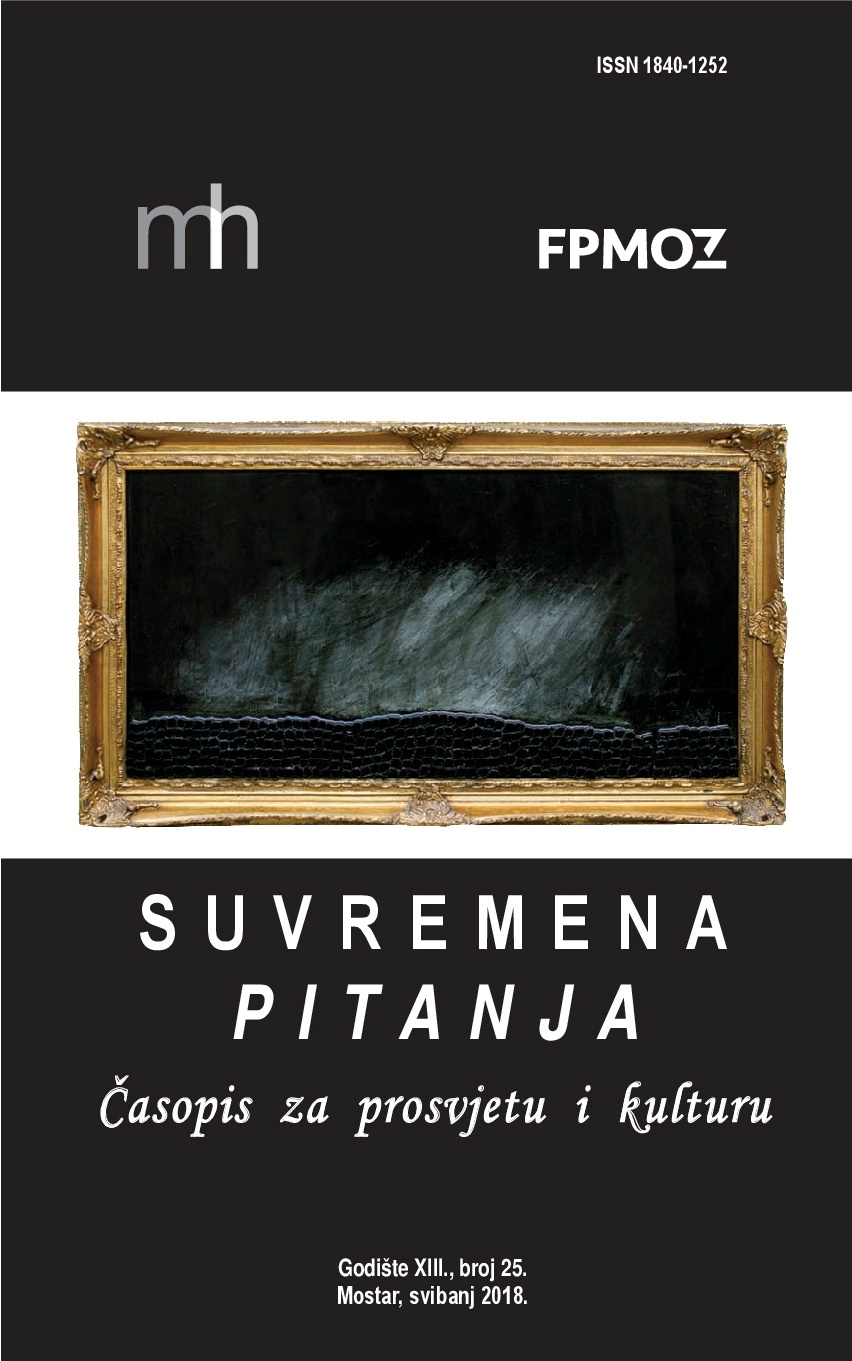Dizdareva poetika pretakanja začaranoga kruga u transcendentalnost
Dizdar’s Poetics of Converting the Vicious Circle into Transcendentality
Author(s): Zdravko KordićSubject(s): Poetry, Metaphysics, Bosnian Literature, Phenomenology, Theory of Literature
Published by: Matica hrvatska Mostar
Keywords: Dizdar, M.; Bosnia; stećak; Islam; the poetical; the transcendental; the phenomenological; the historical;
Summary/Abstract: The configuration and the meaning of poetry arise from a certain situation produced by the poet himself; by doubt, by wondering at the empirical; seeing the use of that situation he gives meaning to the words, he extends the poetic vocabulary to the mental, the spiritual, which becomes a vehicle conveying the empirical to the sphere of metaphysics (transcendence). This is how Dizdar creates his picture about stećci (medieval tombstones), about the medieval Bosnia, sometimes torn out from the historical dimension of its environment ignoring the language of history – creating, in language terms, phonological equilibristics – succeeding, with some repetitions, in intriguing the reflective-active processuality of readers. Trying out the social dimension; the hard labourer’s life – the picture that he took along from his childhood he does not leave on the way but carries it over into the Vidovo Polje night; proceeding further he brings the word into uncertainty, leading it into the travelling past while aspiring in his thoughts after what lies in the future – the word is completely internalized and that represents the poet who is externalized, out of himself – because his word – his world that is in itself and by itself. A miniature world. There exists no internal or external. The consciousness is completely inside, a moment of merging and assembling the object-related and the being-related into the sequence of the world horizon, into the mental structure. A construct of the realization of the future in spirituality. “A belief in the consciousness in itself that is separated from us is only a rationalization of this primeval belief” (M. Merlau-Ponty; p. 469). The poetics of temporality, past, future and expanse passes with Dizdar into the being-related, concise expression – at the expense of description – which is a poetic dreamed-of spirit, a spirit of the dimension of a good poetry.
Journal: Suvremena pitanja
- Issue Year: 2018
- Issue No: 25
- Page Range: 81-108
- Page Count: 28
- Language: Croatian

